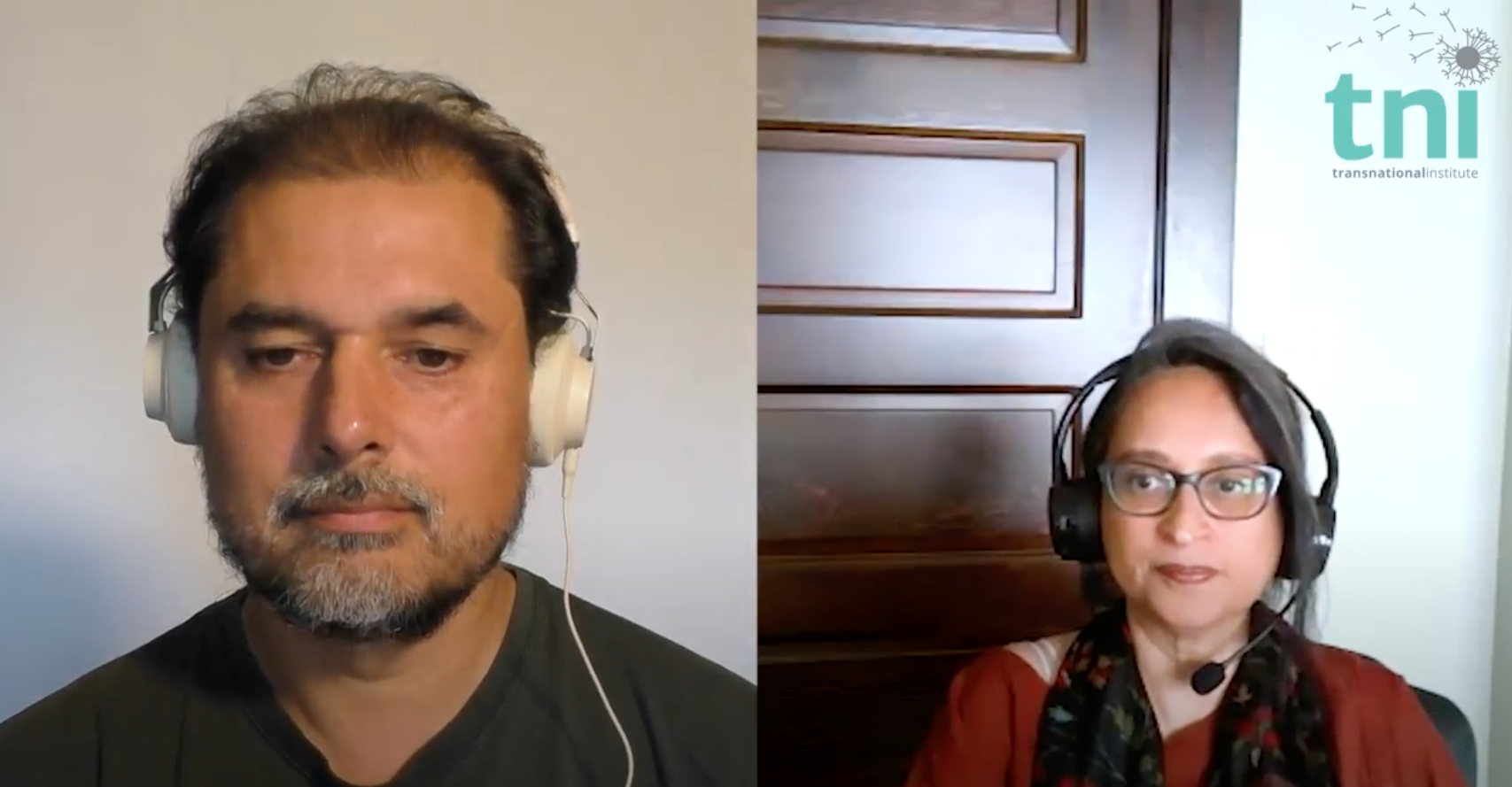|
Twenty years after 9/11, we must finally end the War on Terror
Was this forwarded to you? Sign up
here
|
|
|
Dear reader,
The collapse of the US-backed Afghan regime just weeks after foreign troops left has revealed the hollowness and futility of the War on Terror. But more than its failure, we must remember its many victims. Countless people have died in wars and in drone strikes across the Middle East, Africa and Asia in the last 20 years while Muslim communities worldwide have become targets and scapegoats for repression. The US and its allies responses to 9/11 has also left a legacy of militarism and surveillance everywhere that has massively restricted the freedom to organise and fight for change.
In this special newsletter edition, we highlight the prescient analysis that warned of the dangers of Bush’s declared War on Terror, draw attention to the ways counter-terrorism continues to destroy lives, and highlight the possibilities of a different path towards collective security and well-being.
|
|
|

In this fascinating conversation, Arun Kundnani interviews Deepa Kumar who traces the longer historical roots of the War on Terror and how it racialised and targeted Arab and Muslim communities well before 9/11. Deepa Kumar is the author of the recently published book, Islamophobia and the Politics of Empire: Twenty Years after 9/11. Arun Kundnani is a TNI associate and author of The Muslims are Coming! Islamophobia, extremism, and the domestic War on Terror (Verso, 2014).
|
|
|
|
|
|
|
|
|
|
|
A dossier of TNI’s work in the last 20 years in response to the War on Terror – featuring prescient analysis of the potential dangers of US attacks on Afghanistan and Iraq, examinations of the impacts of the War on Terror on social movements and Muslim communities, and alternative proposals for how to achieve a just peace.
Read more
|
|
|
|
|
|
|
|
|
|
|
Azfar Shafi argues that it is impossible to understand and indeed tackle the failures of ‘counter-terrorism’ without understanding that it is less about ‘terrorists’ and much more about a set of policies, an ideology, a political project and, increasingly, an industry.
Read more
|
|
|
|
|
|
|
|
|
|
|
Arun Kundnani and Ben Hayes
This report – with a foreword by Professor Fionnuala Ní Aoláin, United Nations Special Rapporteur for the Protection and Promotion of Human Rights While Countering Terrorism — details how policies to deal with extremism have been adopted globally and yet are untested and counter-productive, exacerbating the divisions and grievances on which extremism feeds.
Read more
|
|
|
|
|
|
|
|
|
|
|
Follow-up to the flagship Neoconopticon, this 2017 report showed how the EU has embarked on one-way path towards ever more surveillance and militarisation in which the only winners are the security industry.
Read more
|
|
|
|
|
|
|
|
|
|
|
Arun Kundnani argues that a politics of abolitionism offers the best approach to overcoming the failures of US national security policy.
Read more
|
|
|
|
|
|
As part of a project to confront Islamophobia, TNI partnered with award-winning Noor collective to commission five photographers to share the personal stories of Muslims in Spain, France, Belgium and Italy. The online and physical exhibition explored the diversity of the European Muslim experience as well as the diversities of European Islamophobia, showing through its stories the completely false vision of a Europe besieged by Islamic fanatics bent on destruction.
See images
|
International Witness Campaign |
|
TNI is supporting this international initiative to remember two decades of the war on Terror, its impact, its failures and its future, while promoting solidarity, justice and dialogue. Visit its website to read publications, join a series of webinars, and participate in a people's tribunal on Afghanistan.
Learn more
|
|
|
|
|
|
Our groundbreaking report ‘Smoking Guns’ found that European arms exports, including those to regions targeted by the War on Terror, are responsible for the displacement of at least 1.1 million people. Our research joined the dots between Europe’s arms exports, forced displacement and migration. In a follow-up event to the report, we invite you to join a discussion with an expert panel on the implications of these alarming findings for European policy: Which steps need to be taken to control arms exports and prevent further displacement?
Register
|
|
|
|
|
|
|
| | | | | |